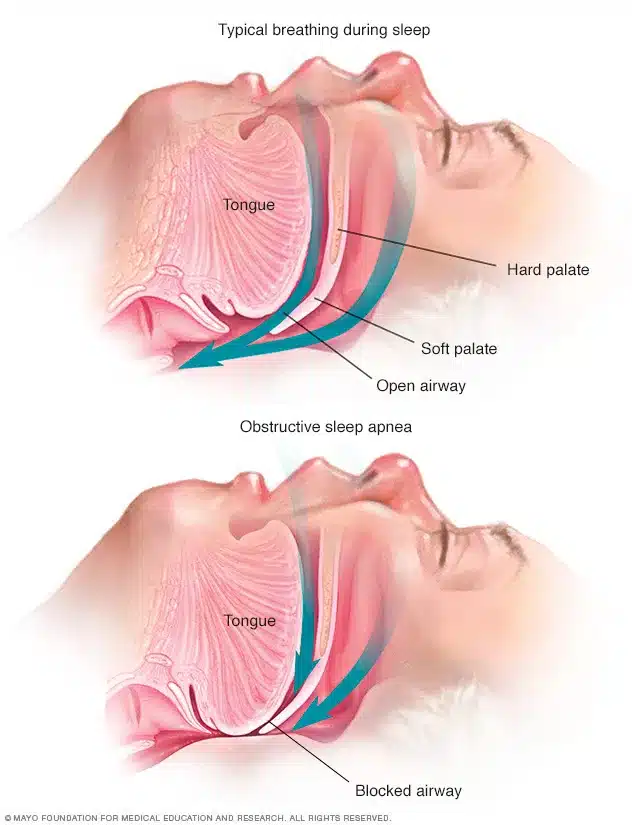Obstructive Sleep Apnea
Obstructive Sleep Apnea Doctor in Colorado
What is obstructive sleep apnea?
Sleep apnea is a condition where you have pauses in your breathing for short periods of time while sleeping. There are two types of sleep apnea: obstructive sleep apnea and central sleep apnea.
In obstructive sleep apnea, the throat muscles relax causing temporary blockage of the airway leading to repeated pauses in breathing.
What are the symptoms of obstructive sleep apnea?
The main symptoms are daytime sleepiness, loud snoring, and tiredness. Other symptoms include:
-
Waking up choking or gasping
-
Morning headaches
-
Restless sleep
-
Morning dry mouth or sore throat
-
Frequent nighttime urination
-
Unrestful sleep or grogginess
-
Brain fog or difficulty remembering
** Some people do not have symptoms or do not realize they have them.
How is sleep apnea diagnosed?
At home sleep testing is an excellent way to diagnose sleep apnea. With an at home study, you will be in the comfort of your own surroundings, which can result in a more accurate reading of how you actually slept. The device will be worn for one night of sleep and monitor your breathing, oxygen levels, and breathing effort. The data will then be sent wirelessly to Roaring Fork Sleep and Breathing Consultants for interpretation. You will receive test results and discuss the treatment options in as soon as 1 business day.

Treatments Offered:
-
CPAP or BPAP: The most effective treatment for sleep apnea is a device preventing your airway from collapsing while you sleep. These devices are called continuous positive airway pressure (CPAP) or bilevel positive airway pressure. People using these devices wear a face mask at night that keeps them breathing.
-
Oral appliance: This is a device that is made specifically for you by a sleep medicine dentist. It is also called a “mandibular advancement device” (MAD). It also helps keep your airway open while you sleep.
-
Weight loss can help if you have excess weight or obesity. Losing weight can be challenging and takes time to lose enough weight to help your sleep apnea.
-
Hypoglossal nerve stimulation and surgery are two options that can be discussed if the above treatments fail.
Frequently Asked Questions
Who is at higher risk for OSA?
Individuals who are overweight or obese, have a large neck circumference, are male, smoke, drink alcohol heavily, have a family history of sleep apnea or certain facial features like a small jaw or large tongue.
Can OSA be dangerous if not treated?
Yes, it can lead to serious health complications such as high blood pressure, heart disease, irregular heart rhythms, stroke, diabetes and impaired cognitive functioning. It can also contribute to depression, anxiety and ADHD.
What can I do while waiting for my appointment?
Some people can improve and even resolve sleep apnea with weight loss. Avoidance of alcohol close to bedtime and other sedative medications, both of which can worsen sleep apnea. If you smoke, start taking steps to break the habit. If you suffer from allergies, starting nasal sprays or allergy treatments can help keep your airways open. Training yourself to sleep on your side instead of your back can help some patients breathe easier.
I was prescribed CPAP and I am having difficulty tolerating the mask. What can I do?
Most patients have difficulty adjusting to wearing CPAP due to mask fit. There are many options of masks which can be tried to find one that is most comfortable for you. Feel free to schedule another follow up appointment to do another mask fitting or discuss other treatment options.